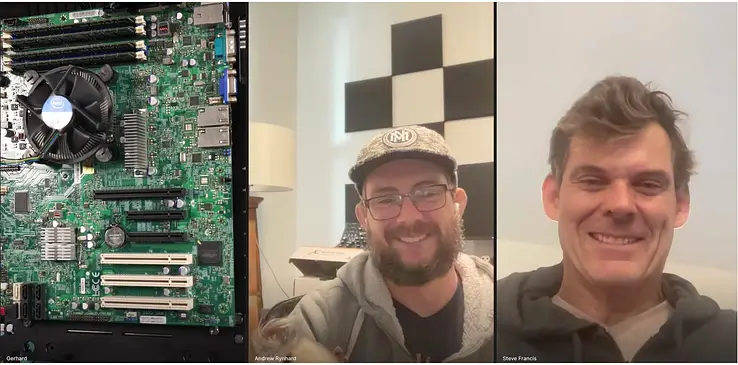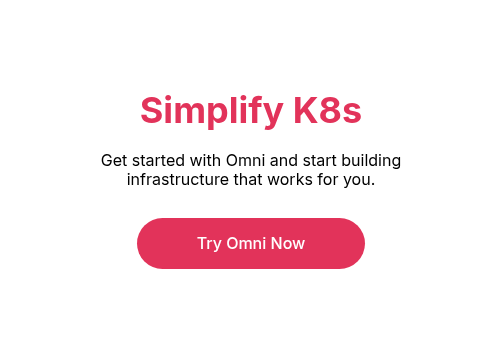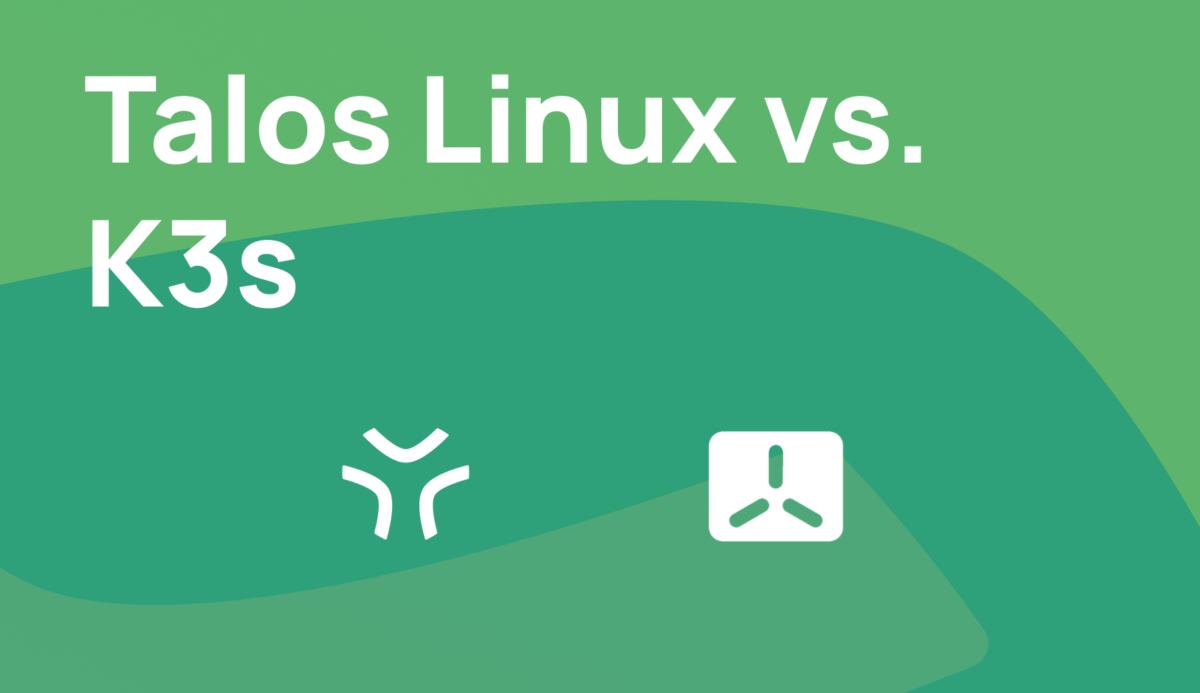Talos Linux & Omni: An origin story about less software and more life

Talos Linux didn’t start in a lab. It started with frustration. I was deep in the weeds of managing infrastructure at a large organization, performing the same repetitive tasks across different systems week after week. I was always automating yet another server, wrestling with tools that added complexity, and watching the infrastructure grow increasingly convoluted. Every script, every config file felt like a patch on a broken process. That pain made me question what Linux could be if it was designed purely for Kubernetes. What would the ideal operating system look like? I started tinkering, and the solution seemed obvious.
Here’s the thing. The people managing Kubernetes clusters, especially on bare metal and edge, are burning out. They’re overworked, stressed, and juggling more responsibility than ever. Automating tasks only goes so far. It doesn’t eliminate the foundational complexity or the cognitive load and ultimately it leads to infrastructures that are simply exhausting to maintain. Talos Linux wasn’t born out of a desire to optimize. It came from a need to eliminate. I wanted to stop building layers of automation on top of already bloated systems and, instead, remove the bloat altogether.
This is the philosophy we carry forward at Sidero Labs: Run and be responsible for less software. Because less software doesn’t mean less power. It means less stress, fewer CVEs, and more time to be creative, to build, or to simply get out and live.
What makes Talos Linux different
Most “lightweight” or “container-optimized” Linux distros carry the baggage of general-purpose Linux. They can be highly automated, but they are not simplified. Talos Linux is different. It is a reimagining of the Linux distro based on a philosophy of simplicity. We chose to cut at the root, rather than endlessly trim at the edges.
You can see the difference in the number of binaries. Talos Linux has less than 50 binaries, while systems like Ubuntu and Flatcar have 2000+. There is simply a fundamental difference in how we approach Kubernetes management.
Talos Linux strips away everything the operator shouldn’t need to think about, like timezone setting, user management, and package management. For a long time, the industry worked to make such operations easier and more automated. But at the end of the day, they would still have to be managed. Someone would still have to oversee–and eventually troubleshoot–all of the minutia, for no real benefit.
With Talos Linux, you only have to manage the most important functions. This forces operators to focus on the parts of infrastructure that matter most. When you build systems that really work, you won’t need to tailor, tweak, or automate. It just works.
Omni: The boring cluster manager that’s changing everything
Then, we went one step further. We wanted to make Kubernetes easy for as many people as possible. That’s why we built Omni.
Omni is the only Kubernetes cluster manager built specifically on top of Talos Linux. Honestly? It’s boring. And we love that about it.
It isn’t flashy. It’s predictable and reliable. It collapses the overly complex Cluster API model into a single binary. It merges infrastructure and OS management into one system, because the OS is the only thing we truly control. That tight integration makes it easier, more portable, and far less fragile.
Omni doesn’t try to dazzle you. It just works. Quietly. Reliably. Declaratively. You define the target state of your cluster, and Omni makes it happen securely and automatically. That’s what infrastructure should feel like.
Human-centered infrastructure
Everything we build at Sidero Labs reflects our core belief: Technology should serve people, not the other way around.
We’re people who have been in your shoes. We’ve been fed up, overworked, and overwhelmed by modern infrastructure. I don’t want to get an alert on Saturday night that one of my countless automations broke, and I know our users don’t want that either. We need simple systems that get the job done. And we know there is a better way forward.
Our job at Sidero is to make Kubernetes something you don’t have to think about, so you can get back to the work (or life) that matters most. We do this by removing layers, leaving users with fewer jobs to be done and fewer chances for something to go wrong. That’s not just a technical vision. It’s a human one.
So yes, Omni is boring. Talos Linux is simple. And that’s exactly the point.



